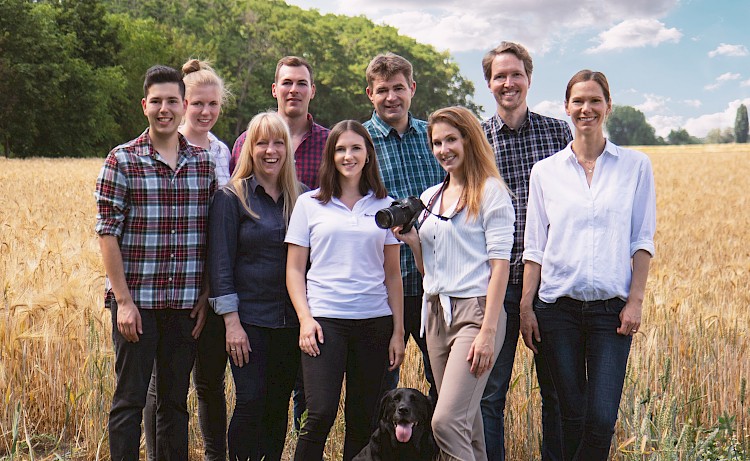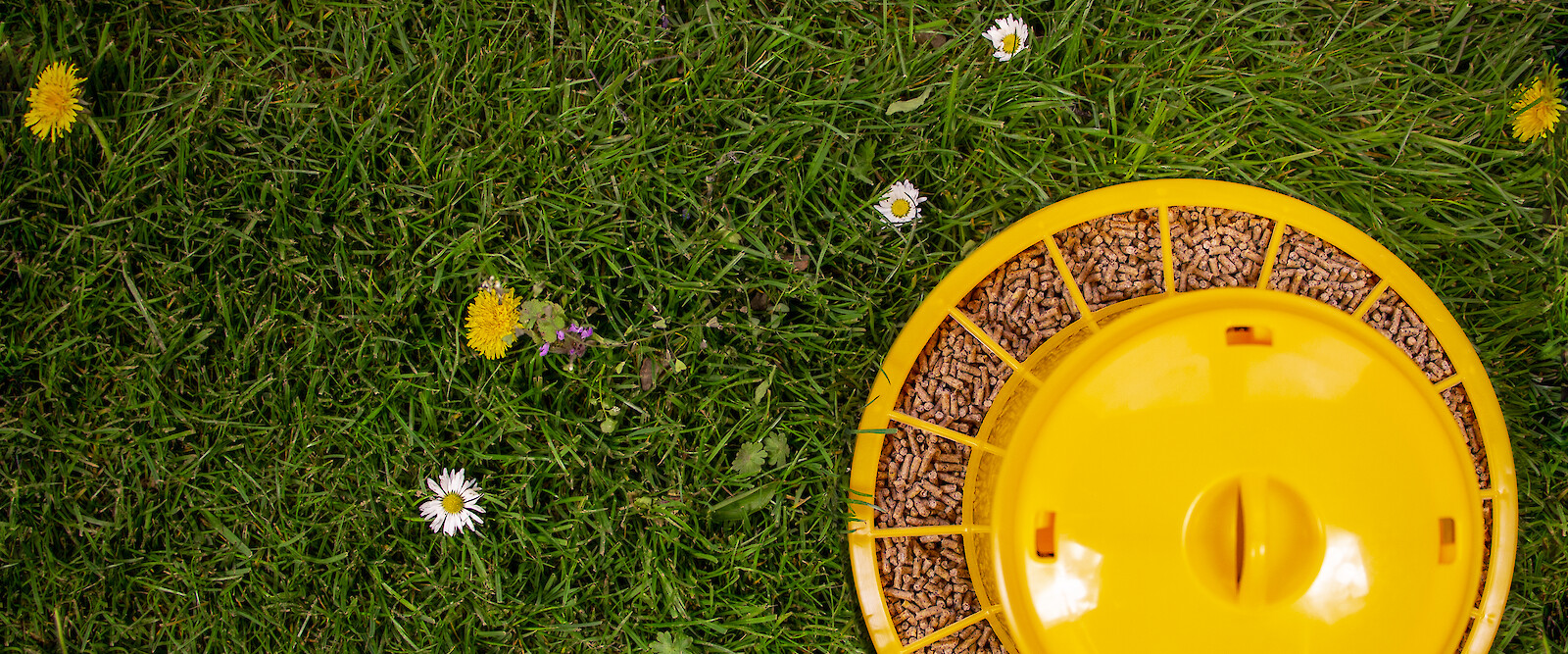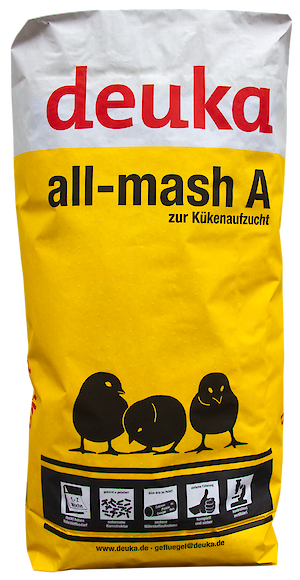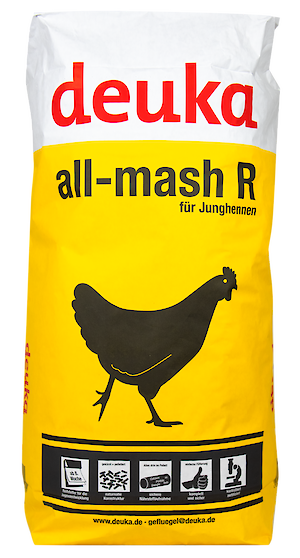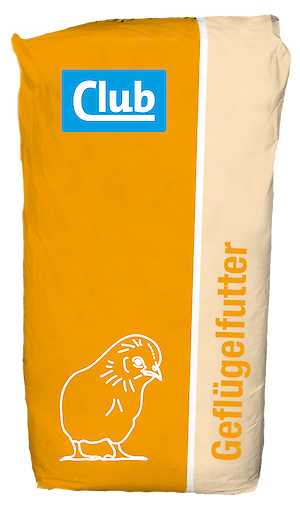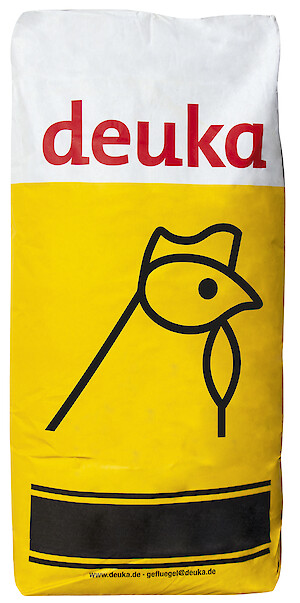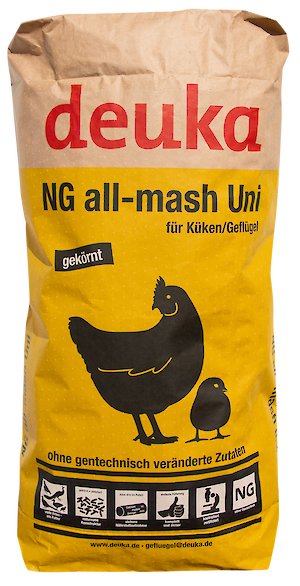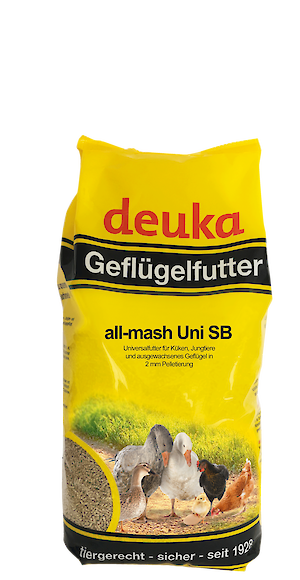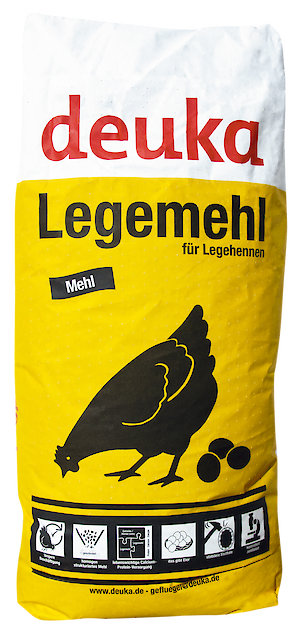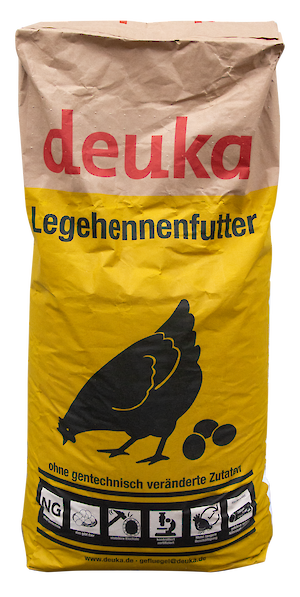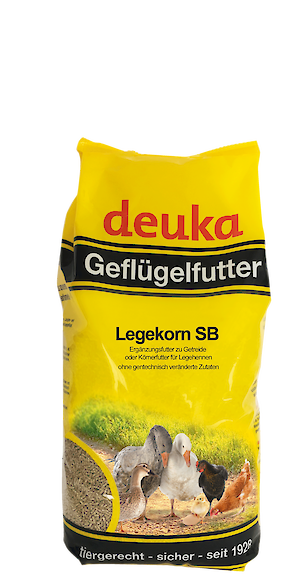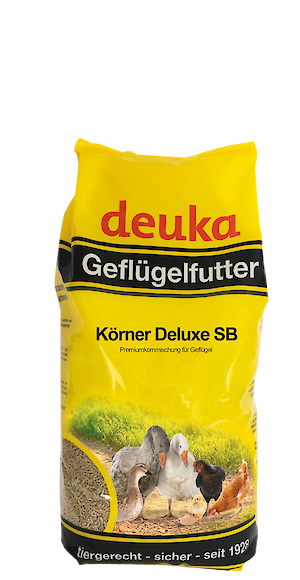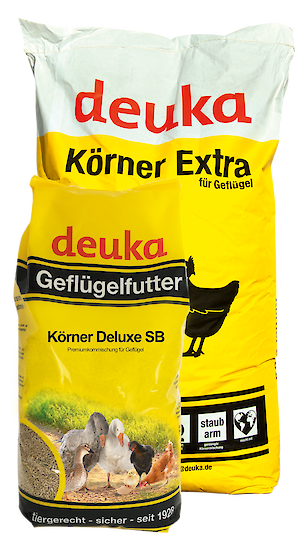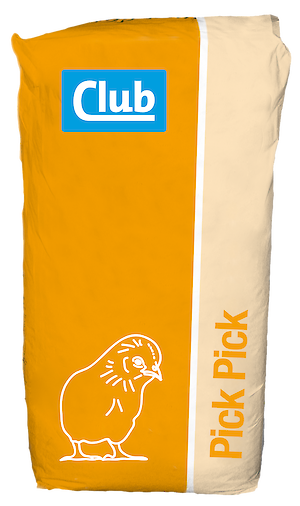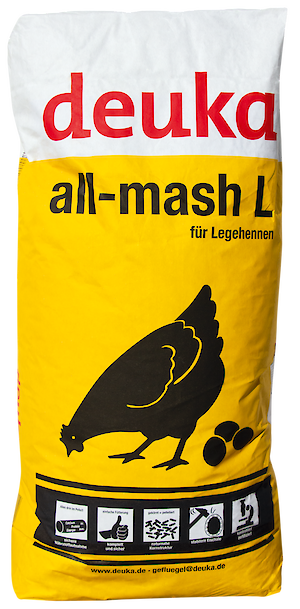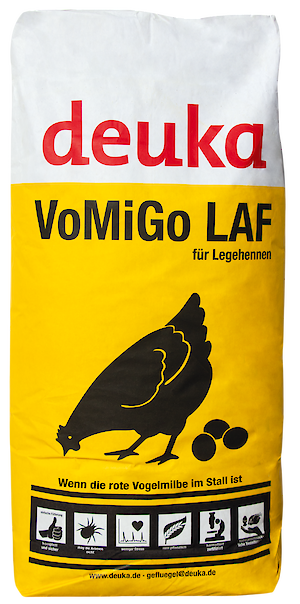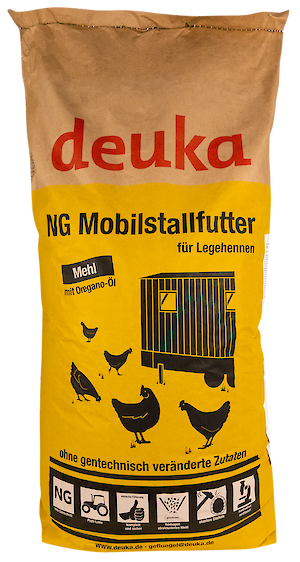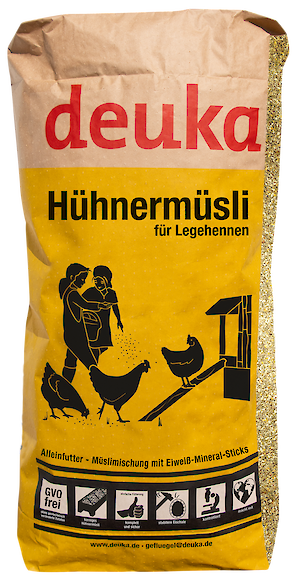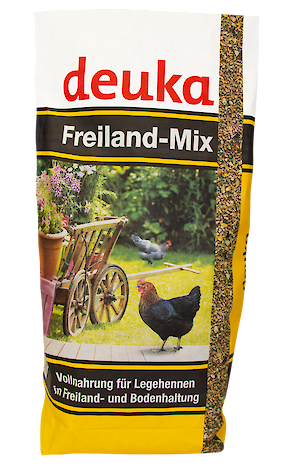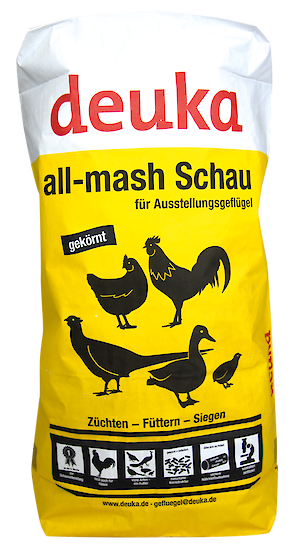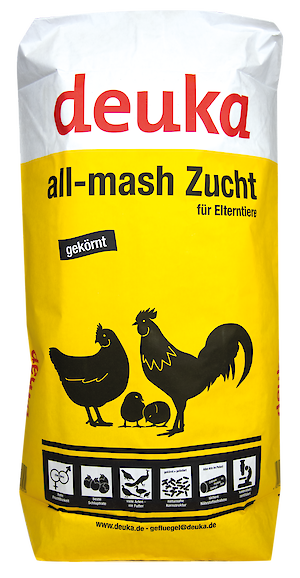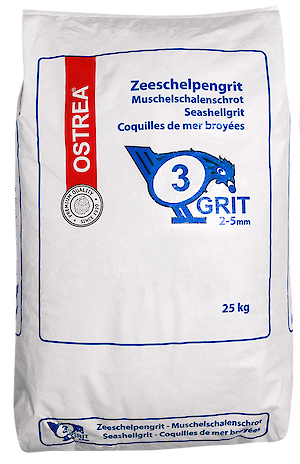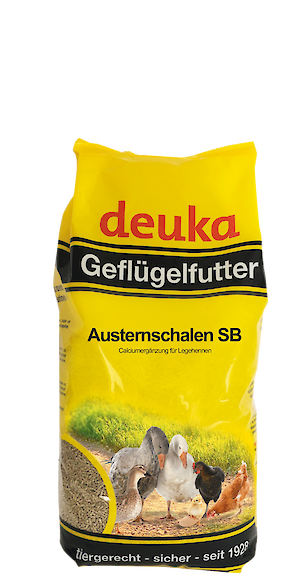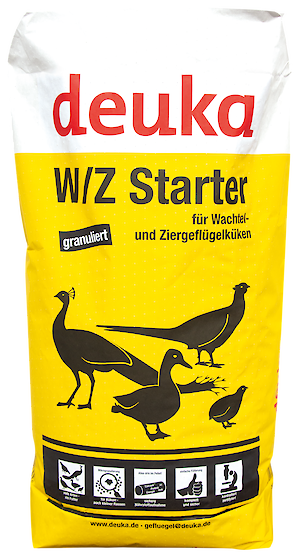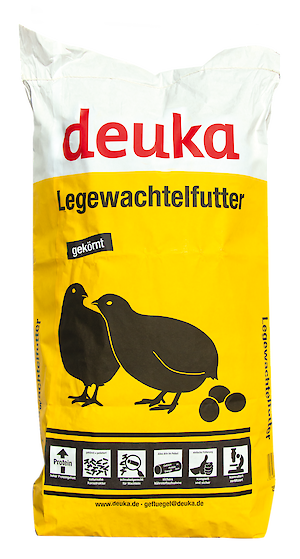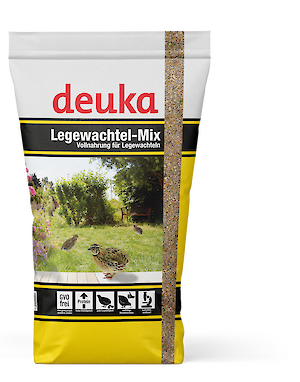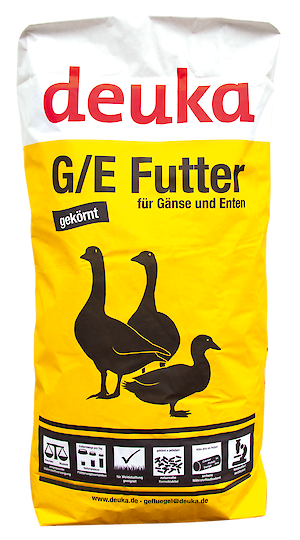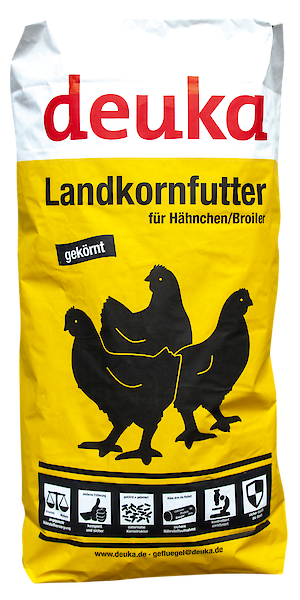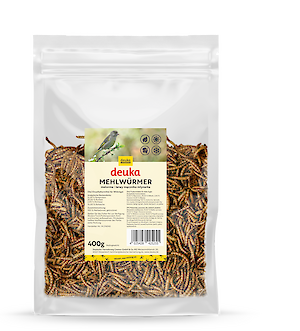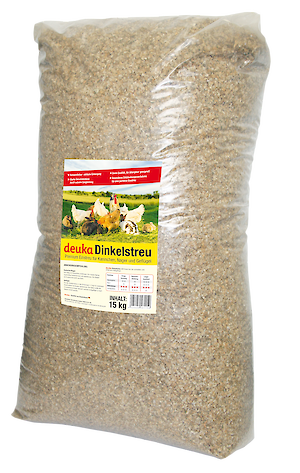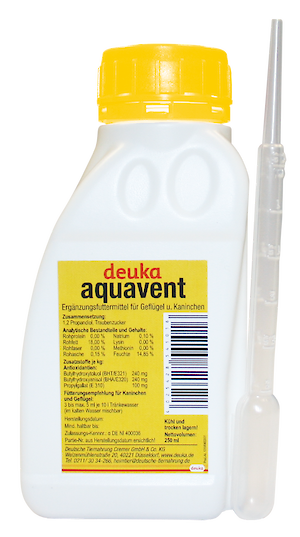Turkey feed
Pre-, starter-, fattening- and finishing feed for turkeys
- The four deuka turkey feeds in sacks are specially designed for the different growth phases of turkeys.
- The turkeys get the right pellet size depending on their size and age. This supports a consistently reliable feed intake of the animals.
- The feeds contain special recipes for the different nutrient requirements in the respective growth phases. This ensures that your animals are supplied with the nutrients they need and that they grow well.
- Up to and including the main fattening stage, all deuka turkey feeds (P0, P2, P3) contain a coccidiostat to protect against intestinal coccidiosis.
- For the final fattening phase, deuka P5 is the feed without coccidiostat.
Feeding recommendation
Turkey starter (P0) chilled:
Feed as complete feed ad lib. in the 1st and 2nd week of life.
Turkey starter (P2), cooked:
Feed as complete feed ad lib. from the 3rd to the 6th week of life. Feed with coccidiostat. Please observe the warnings!
Turkey fattening (P3) cooked..:
Feed as complete feed ad lib. from the 6th to the 9th week of life. In the case of short fattening, it is recommended to change to final fattening feed in the last 5 days before slaughter. Please observe the warning notice.
Turkey finishing (P5) chilled:
Feed as complete feed ad lib. in final fattening from approx. 13 weeks of age.
Always provide fresh drinking water.
Ingredients
Turkey starter (P0) gek.:
| Crude protein | 27,50 % |
| Crude fat | 5,10 % |
| Crude fibre | 3,20 % |
| Crude ash | 7,70 % |
| Lysine | 1,80 % |
| Methionine | 0,70 % |
| Calcium | 1,30 % |
| Phosphorus | 0,90 % |
| Sodium | 0,14 % |
| Energy | 11.40 MJ ME/kg |
Turkey starter (P2) cooked..:
| Crude protein | 26,00 % |
| Crude fat | 5,40 % |
| Crude fibre | 3,20 % |
| Crude ash |
7,00 % |
| Lysine | 1,60 % |
| Methionine | 0,60 % |
| Calcium | 1,25% |
| Phosphorus | 0,90 % |
| Sodium | 0,14 % |
| Energy | 11.70 MJ ME/kg |
Turkey fattening (P3) ch.:
| Crude protein | 22,00 % |
| Crude fat | 6,30 % |
| Crude fibre | 3,30 % |
| Crude ash | 5,90 % |
| Lysine | 1,45 % |
| Methionine | 0,56 % |
| Calcium | 1,10 % |
| Phosphorus | 0,70 % |
| Sodium | 0,14 % |
| Energy | 12.20 MJ ME/kg |
Turkey final fattening (P5) chopped:
| Crude protein | 17,00 % |
| Crude fat | 5,20 % |
| Crude fibre | 3,00 % |
| Crude ash | 4,60 % |
| Lysine | 1,15 % |
| Methionine | 0,40 % |
| Calcium | 0,85 % |
| Phosphorus | 0,55 % |
| Sodium | 0,14 % |
| Energy | 12.8 MJ ME/kg |
For individual values, there may be slight deviations in content between the supplier plants.
List of ingredients
Turkey starter (P0) cooked:
Soybean meal (steam fermented), wheat, maize, wheat (cracked), soybeans (steam fermented), barley (cracked), maize (cracked), potato protein, monocalcium phosphate, calcium carbonate, vegetable fatty acids, vegetable oil, sodium chloride, Na-carbonate, calcium butyrate ( coccidiostat)
Turkey starter (P2) cooked:
Soya protein meal (steam fermented), wheat, maize, wheat (digested), barley (digested), maize (digested), potato protein, monocalcium phosphate, calcium carbonate, vegetable fatty acids, vegetable oil, sodium chloride, Na-carbonate, calcium butyrate ( coccidiostat)
Turkey starter (P3) c.:
Wheat, soybean digest, steam, maize, vegetable fatty acids, wheat (digested), calcium carbonate, monocalcium phosphate, potato protein, barley (digested), maize (digested), vegetable oil, wheat flour, soybeans, steam, sodium chloride, Na-carbonate ( coccidiostat)
Turkey finishing (P5) c.:
Wheat, maize, soya bean meal (steam fermented), vegetable fatty acids, potato protein, calcium carbonate, monocalcium phosphate, vegetable oil, sodium chloride, Na carbonate (without coccidiostat)
Depending on the production plant, season, availability of goods, etc., slight changes in composition may be possible. The actual recipe and ingredients of the feed can be found on the declaration attached to each feed bag.
Vitamins
| Vitamin A | 10.000.00 I.U./kg |
| Vitamin D3 | 5.000.00 I.U./kg |
| Vitamin E | 80 mg/kg |
For individual values, there may be slight deviations in content between the supplier plants.
Trace elements
contain other trace elements
For individual values, there may be slight deviations in content between the supplier plants.
More feeds in our assortment
